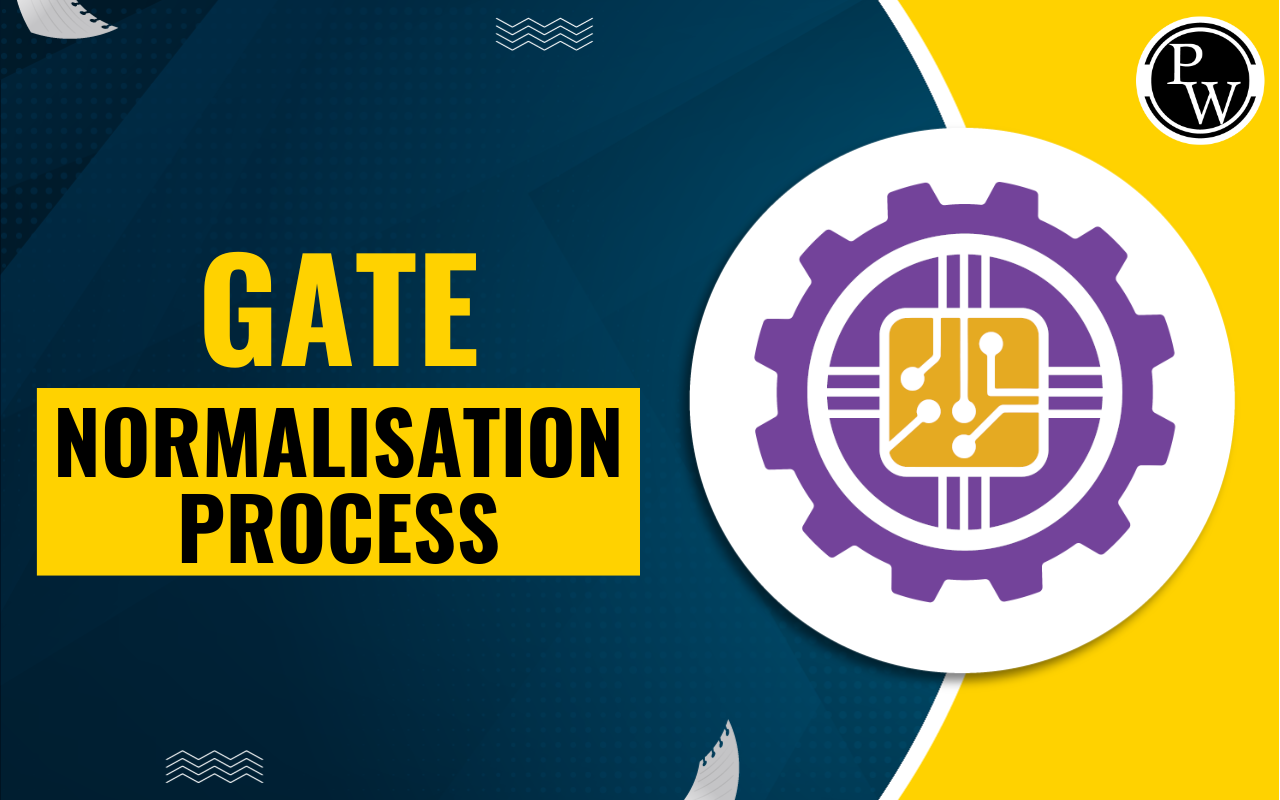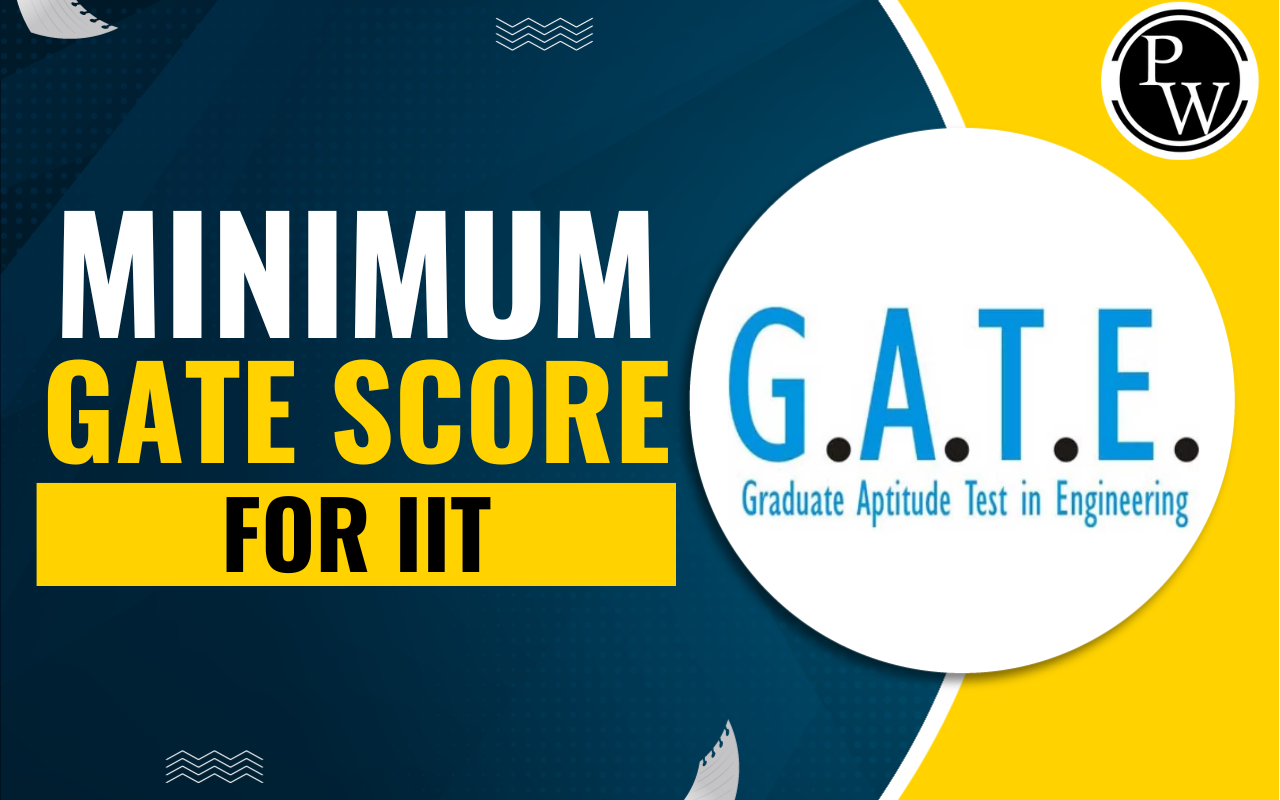
GATE vs UGC NET: Two of the most competitive exams in the field of science or engineering that also happen to offer excellent job opportunities in research and other relevant fields are GATE (Graduate Aptitude Test of Engineering) and UGC NET ( University Grants Commission National Eligibility Test). While the GATE invites applicants who are undergraduates in engineering, technology, science, commerce, humanities, etc., the UGC NET welcomes applicants who possess a post-graduation degree.
While both of the examinations are held at a national level, they serve distinct objectives, eligibility criteria, and goals. Continue reading to explore the comparison and key differences between the GATE and UGC NET exams.
GATE vs UGC NET Overview
Applicants who pass the Graduate Aptitude Test in Engineering after scoring well and surpassing the GATE cut off determined by the officials become eligible to pursue higher studies such as M.Tech, Ph.D., etc. from highly esteemed institutions such as IITs, NITs, and IIITs, etc.
On the other hand, applicants placed through the UGC NET gain a position as assistant professors in various universities and colleges throughout the nation. Furthermore, qualified applicants are awarded the Junior Research Fellowship program for further research studies in numerous fields of science, like IITs, government research, and post-grad colleges, among others.
| GATE Vs UGC NET Highlights | ||
| Particular | Differences | |
| Examination Name | UGC NET | GATE |
| Official website | UGC NET | GOAPS |
| Conducting body | National Testing Agency | IISc and seven IITs |
| Level of Test | National | National |
| Examination Mode | Computer Based Test (CBT), i.e. Online | |
| Purpose of Exam | Lectureship (LS) and JRF (Junior Research Fellowship) | Admission into M.E./M.Tech/Ph.D. and PSU Recruitment |
| Exam Frequency | Twice a year | Once in a year |
| Types of Questions | Multiple Choice Questions (MCQs) | Multiple Choice Questions (MCQs) Multiple Select Questions (MSQs) and Numerical Answer Type (NAT) Questions |
| Total Questions in Exam | 81 | 65 |
| Age Limit | JRF: 33 to 35 Years (depending on category) Lectureship: No age limit | No age limit |
GATE vs UGC NET- All About Exams
GATE and UGC NET are both different in their own ways, serving different purposes and targeting different career paths. Aspirants seeking jobs or higher education in research and technological disciplines often get confused by the differences between the UGC NET and GATE exams.
What is the GATE Exam?
The Graduate Aptitude Test in Engineering, commonly known as GATE , is a national-level test jointly administered by the Indian Institute of Science (IISc), Bangalore, and the seven Indian Institutes of Technology, which are: IIT Bombay, IIT Delhi, IIT Guwahati, IIT Kanpur, IIT Kharagpur, IIT Madras, and IIT Roorkee. The exam is held to achieve the objectives, which are as follows:
- Accept applicants for M. Tech, M. E., and M. Arch programs.
- Accept applicants for Ph.D. programs in relevant fields of arts and science at universities supported by the MoE and other government entities.
- Facilitate Public Sector Undertakings (PSUs) in recruiting applicants based on their GATE scores.
Read: M.Tech vs PSU, Govt Job After GATE, Salary, Scope In India
What is the UGC NET Exam?
The UGC NET is designed to shortlist applicants for assistant professor and JRF positions. Every year, applicants can take the UGC NET twice a year, from July to December.
- The UGC NET is held on a national level in a number of states and cities around the country.
- This examination is administered by the National Testing Agency, or NTA.
- The top 6% of those who qualify are announced to be eligible for lectureships, and approximately two to three percent of the applicants are shortlisted for both JRF and lectureships.
GATE vs UGC NET: Exploring Key Differences
While the GATE and UGC NET examinations follow the same format, there are significant differences in their objectives, the number of vacancies available, age specifications, score validity, subject diversity, and more. Let's explore the key differences between these two examinations on the following parameters:
- Subjects of the Examinations
- Eligibility Requirements
- Exam Pattern for UGC NET and GATE
- Score Validity
- Career Opportunities After Passing GATE and UGC NET
- Stipend Opportunities
- Scope of the Examinations
GATE vs UGC NET- Subjects Detail
The total number of subjects is one of the major differences when it comes to GATE vs UGC NET. The GATE syllabus is a comprehensive guide containing 30 subjects in total. On the other hand, there are 82 subjects included in the UGC NET syllabus . Let's take a look at the subject list for the GATE and UGC NET examinations.
| GATE Vs UGC NET Subject List | |
| GATE Subjects | UGC NET Subjects |
|
For Paper 1:
|
GATE vs UGC NET- Eligibility Criteria
The GATE eligibility criteria are different from the UGC NET eligibility criteria in terms of qualifications and age requirements. Applicants in their 3rd year or final year can also apply for the GATE exam; however, for the NET, a master's degree in a relevant field is required. Check out the highlights of the GATE vs. UGC NET eligibility criteria in the table outlined below.
| GATE vs. UGC NET Eligibility Criteria | ||
| Particulars | UGC NET | GATE |
| Age Limit | 30 Years for Junior Research Fellowship No age limit for Assistant Professorship | There is no specific age limit for GATE examination |
| Educational Qualifications | Postgraduate degree in relevant subject or equivalent with at least 55% marks for unreserved applicants, 50% for SC, ST, PwD, and transgender applicants | Applicants pursuing their 3rd year or above, or who have completed an undergraduate degree in engineering, technology, architecture, humanities, commerce, etc |
GATE vs UGC NET- Exam Pattern
Both GATE and UGC NET exam patterns differ from each other. While the UGC NET exam pattern includes two papers, the GATE exam pattern includes only one paper worth 100 marks. Refer to the table below to check the GATE vs. UGC NET exam patterns.
| GATE vs UGC NET Exam Pattern | ||
| Particulars | UGC NET Exam Pattern | GATE Exam Pattern |
| Mode of Examination | Online | Online |
| Duration of Examination | 3 hours | 3 hours |
| Number of Subjects | 82 | 30 |
| Sections/ Papers in Exams | 2 (Paper 1 is common for all; Paper 2 is subject specific) | 2 or 3 sections (General aptitude, core subject, engineering mathematics, if relevant) |
| Types of questions | MCQs | MCQs, MSQs, and NATs |
| Number of questions | Paper I-50 Paper II-100 | 65 |
| Languages of Paper | Hindi and English | Only English |
| Total Marks | Paper I-100 Paper II-200 | 100 |
| Negative Marking | No negative marking | GATE negative marking is only applicable for MCQs |
GATE vs UGC NET- Score Validity
After qualifying for the examination, applicants can utilize the GATE scores or UGC NET scores for various purposes as per their eligibility. However, the duration for which the scores are valid is limited, as outlined below.
| UGC NET vs GATE - Score Validity | |
| UGC NET | GATE |
| For Admission: UGC NET scores are valid for a span of two years for admission in different programs and recruitment. | For Admission: The GATE scores are valid for up to three years in order to get admission in IITs, NITs, etc. |
| Lectureship: There is no validity to using the NET score in lectureship certifications. | PSUs through GATE : The score validity is two years for PSU recruitment through GATE scores. |
Read: Minimum GATE Score For IIT, Know Cutoff Of Top IITs
GATE vs UGC NET- Career Scope
After passing the GATE exam, applicants can either pursue higher education courses such as a master's in technology or doctoral programs. The career opportunities that come with passing the UGC NET vs. GATE examinations are provided below.
| UGC NET vs GATE - Career Scope | |
| UGC NET | GATE |
| Establish a career as an assistant professor. | Admission for M.Tech. in IITs, NITs and other prestigious institutes or universities |
| Admission to Ph.D. programs | Admission for Ph.D. Research |
| Recruitment opportunities in Public Sector Undertakings (PSUs) | Fellowship in management at IIMA, B, and C |
| Admission to IITs, NITs and full-time research work (JRF) | PSUs Recruitment through GATE |
GATE vs UGC NET- Monthly Stipend
Applicants who pass the UGC NET or GATE exams can potentially be eligible for a monthly stipend from the authorities. However, it is worth mentioning that the stipend granted to applicants who pass the UGC NET exam is typically more than that offered to GATE-qualified applicants. Check out the information below for more stipend details regarding GATE vs. UGC NET.
For UGC NET:
- Junior Research Fellowship (JRF) applicants are entitled to a stipend of approximately INR 25,000 per month for the initial two years.
- The stipend increases to approximately INR 28,000 per month for the subsequent duration.
For GATE:
- While pursuing an M.Tech. degree program, the stipend is around INR 12,400 per month.
- After completing an M.Tech degree, applicants pursuing a Ph.D. in NITs receive a stipend of INR 25,000 per month for the first two years, followed by an increase to INR 28,000 per month for the rest of the three years.
- Students seeking a Ph.D. at prestigious institutes such as IISc and IITs receive an enticing fellowship payment of INR 70,000 per month.
GATE vs UGC NET- Which Exam is Tough to Qualify?
While the difficulty level of the UGC NET and GATE examinations is mostly determined by the applicants' preparation, GATE is significantly more challenging than the UGC NET. This may be due to the fact that the level of questions in the GATE exam dives into advanced and technical concepts, demanding applicants to have a solid understanding of the subject at hand. For more clarification, let’s have a look at the comparison of GATE vs. UGC NET in terms of difficulty here.
|
GATE Vs UGC NET- Which Exam is Tough? |
|
| Parameters | Comparison |
| Exam Pattern | GATE has a more intricate exam pattern with MCQs, MSQs, and NAT questions. On the other hand, UGC NET includes only MCQs, which are relatively common and easier to attempt. |
| Exam Frequency | GATE is conducted once a year, while UGC NET is conducted twice a year. |
| Number of Test Takers | GATE typically sees over 8 to 9 lakh applicants appearing for the exam annually, whereas UGC NET attracts around or over 2.25 lakh applicants in a single session. |
Ace the upcoming GATE 2024 exam by enrolling now in the PW GATE online coaching courses designed to cover the latest syllabus with India's top educators at affordable prices.
GATE vs UGC NET- Benefits of Qualifying Exams
Now that interested aspirants must be aware of the key differences between the GATE and UGC NET examinations, it's time to explore the benefits of these competitive examinations.
- Applicants who successfully clear the GATE exam are qualified to seek admission to postgraduate degree courses such as M.Tech or M.E., while the UGC NET exam is open to postgraduate applicants or those in the final year of their postgraduate studies.
- Graduates of highly esteemed universities such as IITs and NITs can apply for monthly scholarships through programs like the Prime Minister's Research Fellowship (PMRF), with stipends ranging from INR 70,000 to INR 80,000. A valid GATE score, on the other hand, is required for admission to IITs and NITs.
- A valid GATE score can open doors for possible jobs at prestigious government agencies such as BARC, ISRO, and TIFR.
- Applicants with a valid GATE score are eligible to apply for Ph.D. programs at NITs, IITs, and state universities, which provide a pathway to advanced research and academic excellence.
- Applicants who have qualified for the UGC NET JRF or who are currently enrolled in Master's degree programs are eligible for a stipend that varies between INR 13,000 and INR 14,000 for the project or internship period.
- Furthermore, aspirants who have attained JRF level in UGC NET can apply for a fellowship program. The University Grants Commission (UGC) provides a stipend of INR 25,000 for this program.
- This financial support is effective for a period of two years from the date of receipt of the JRF letter, providing applicants with essential financial aid as they pursue their research and academic endeavors.
| Also, check | |
| GATE vs CAT | GATE vs NET |
| GATE vs SSC CGL | GATE vs SSC JE |
| M.Tech vs MBA | GATE vs ESE |
GATE vs UGC NET FAQs
Is GATE tougher than UGC NET?
How is GATE different from the NET exam?
Who conducts the GATE and UGC NET exams?
Can I get into IITs to pursue a M.Tech. through UGC NET?










